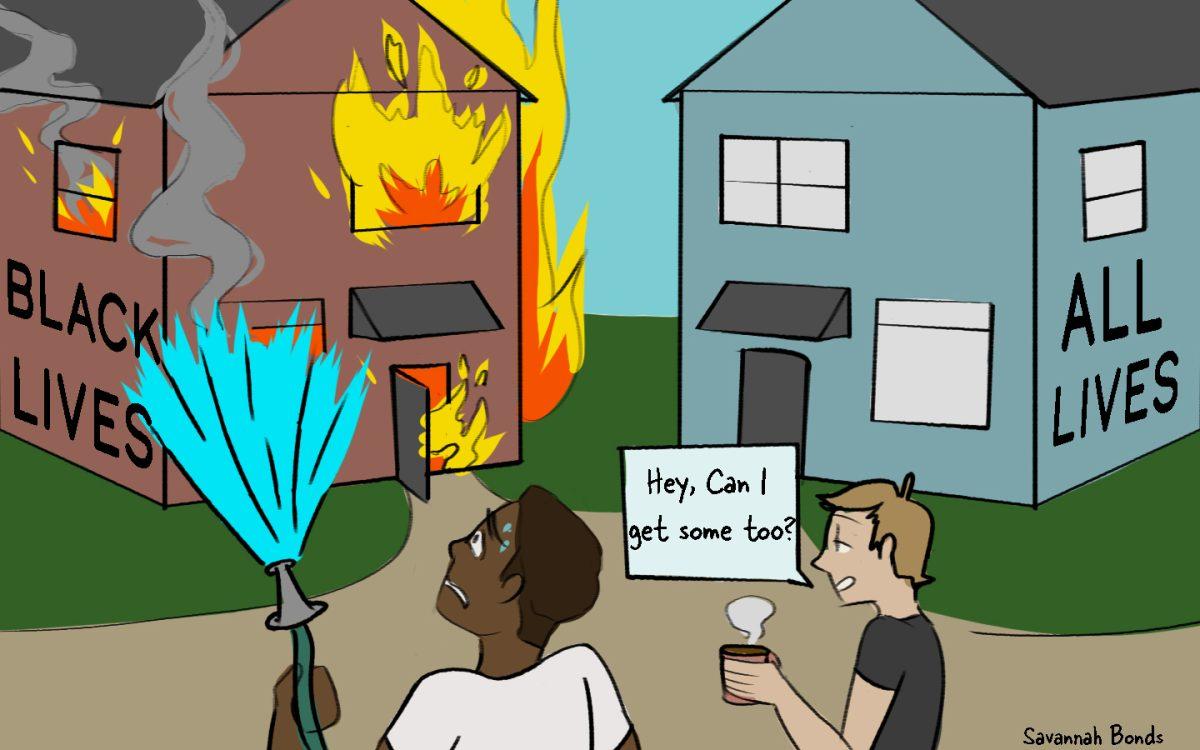This is the 12th article I have written for The Reflector, yet I find writing it has a unique challenge I have not experienced with previous articles. I am an opinion columnist who writes about my personal opinions. I mostly write about my thoughts on international relations with an occasional pivot to other topics. However, in this article, I do not wish to write about my opinion or my thoughts. Rather, I want to write about other people’s opinions, specifically black people’s opinions.
Being black in the U.S. has never been easy. Our political, economic and social systems are not designed to make it easy. The murder of George Floyd has reawakened that reality for many of us who are not faced with the challenges of being black on a daily basis. Derrick Taylor of The New York Times has been keeping a timeline on actions related to Floyd’s murder, which continues to keep those challenges front and center in our societal conscience.
Social media campaigns which seek to blackout Instagram, long Facebook posts encouraging racial equality and harrowing YouTube videos are an interesting modern way society has chosen to tackle these issues. These posts often conclude in “#BlackLivesMatter,” which sometimes draws criticism from nonblack Americans. Please allow me to clarify that hashtag and slogan for those who find it offensive or inappropriate.
“Black Lives Matter” does not mean police lives do not matter. It does not mean other lives do not matter or matter less. Think of it with this popular analogy—if a house is on fire, we do not throw water on all of the houses because all houses matter. We throw water on the house which is burning because that is the house which needs it the most. This analogy became familiar to me through the white rapper Macklemore’s song “White Privilege II.” That song is a powerful message, though laced with profanity, about how Macklemore, as a white man, has struggled to find ways to show solidarity with the black community.
I have found myself in a similar situation to Macklemore in this regard, so I turned to my black friends and asked them what I should do. An almost universal answer from many of them was simple—listen. Listen to their stories, their thoughts, their fears and their challenges. Listen, learn and allow your heart to digest what they feel and what they fear. Do not criticize or attempt to invalidate what they say, regardless of whether or not you agree.
The least nonblack people can do is afford a black person the opportunity to tell their story. Let them know you stand with them in solidarity, you know we can do better, but more than that, pledge to do better. After hearing their thoughts and fears, take action within your own community seeking to resolve injustices at home.
In addition to directly speaking with and hearing from my friends of the affected racial group , YouTube videos can be a stirring way to better understand the struggles of black Americans. Though it seems unorthodox to recommend an upbeat Broadway-esque music video in this context, I believe Todrick Hall’s “Ordinary Day” is a shocking and eye-opening illustration of some of these challenges.
The music video features a black police officer patrolling a black neighborhood in which a young white man is innocently walking down the street. The officer, completely unprovoked and with no reason to exercise violence, shoots the young white man at point-blank range. After his body unceremoniously falls to the ground, the black residents come out of their homes and parade around the street singing a cheery, upbeat song about how today is just another “ordinary day.”
The music video and the lyrics of the song are a foil to what we experience on a regular basis—a young black man being murdered without cause. Where there may be a temporary uproar, it has become so commonplace it is considered just another “ordinary day.” This music video is particularly stirring, and I encourage all of our readers to listen to it on YouTube here.
In closing, I leave you with two of my mantras. An attack on one is an attack on all, and injustice anywhere is injustice everywhere. Do not take advantage of your luxury to stay silent because it comes at a cost—a cost you may not ever have to pay or even know anything about.





















































































